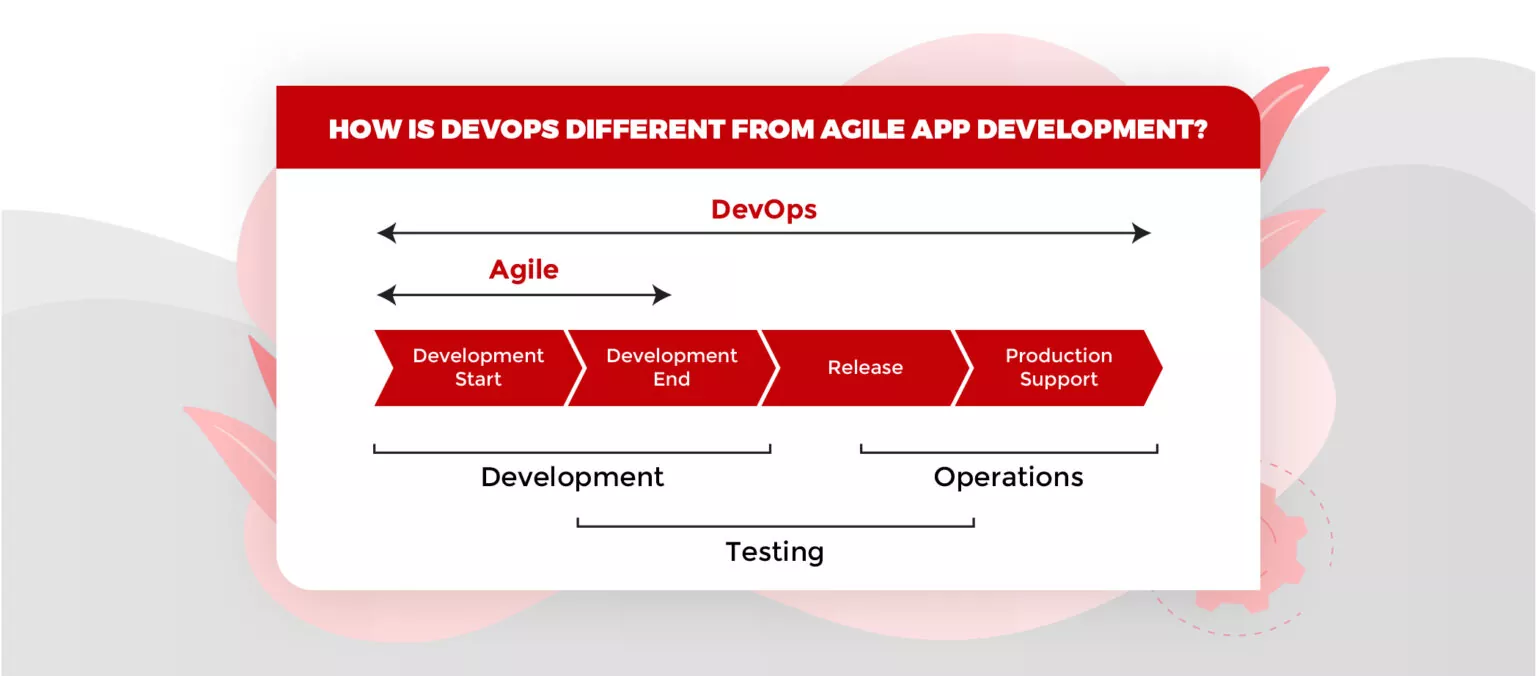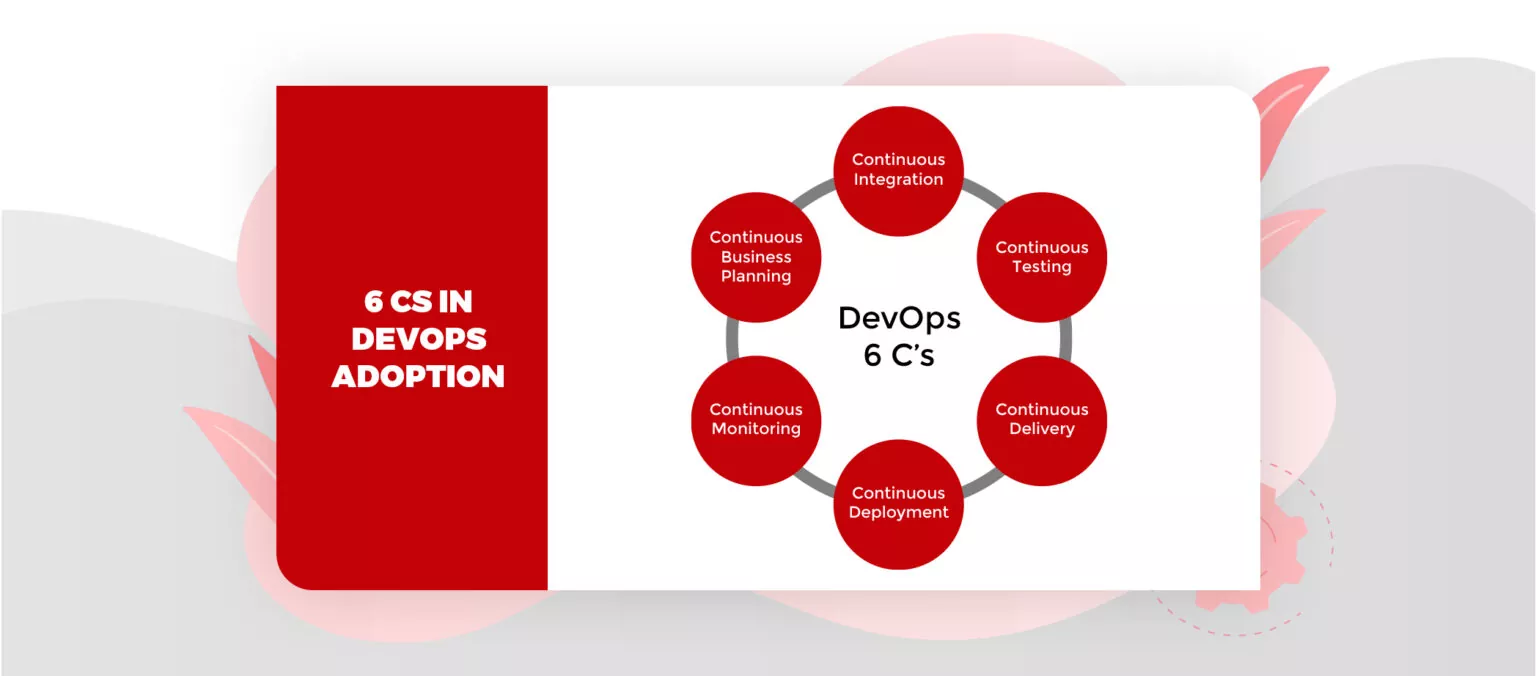
Today the extent of smartphone users is increasing exponentially and is expected to reach several hundred million within the upcoming few years. As a result, more and more businesses are looking forward to developing a mobile app rendering all their services to customers. As a result, they need practice or an approach that can accelerate the development of mobile applications.
At present, DevOps methodology is embraced by the companies at a higher rate for mobile app development. Do you know why? Let’s discuss how why DevOps is so popular and why remote DevOps engineers are in demand. So stay tuned…..
Table of Contents
ToggleAs per a market study, Companies that have executed DevOps have profited a 63% improvement in software deployment quality and about 63% delivered new software frequently.
Benefits of DevOps in Mobile App Development
DevOps has brought the development team and operation team closer so that both the teams can parallelly work on each other’s requirements. Before DevOps, developers used to first write the code and afterward send it to the operation group.
The interaction makes the application development lifecycle productive. DevOps development guarantees that obligations are dispersed equally among various groups and goals are aligned so that each group has transparency about the application performance.
Let us find out why organizations consider DevOps as ideal for mobile application improvement, here are the benefits it brings:
Eliminate Inefficiencies and Bottlenecks
The objective of using DevOps is to keep the development process transparent, efficient along with improving the communication between the teams. As a result, it helps in eliminating several bottlenecks and inefficiencies such as –
- Manual intervention
- Stability and workflow maturity
- Absence of operational practices
- Inconsistent development environment
Improved Interoperability among the Teams
DevOps culture adoption eliminates silos between the development team and operation team. It improves the cooperation between the various teams and promotes interoperability to bring in a culture of transparency. It permits the IT and business groups to work together to shorten the feedback loop leading to higher business development. Because of the interoperability that DevOps offers, the development efforts are in synchronization with business goals.
Also Read – How DevOps Engineers Help Improve Business Efficiency
Faster Development Cycle
The speed of development is an important consideration to the market to avoid being outpaced by the competitors. The faster software development lifecycle ensures faster correction of bugs and acceleration in the project deployment. DevOps methodology not just guarantees higher development speed and faster delivery, it additionally guarantees that the business processes are following the ideal direction contributing to business achievement and ROI.
Continuous Release and Deployment
The continuous integration and continuous delivery approach of DevOps accelerate the deployment process. The Software development process comprises various smaller development cycles bringing the quicker release of the code into production.
Another significant benefit of DevOps adoption is the consolidation of automation into the company’s development work process. Automated testing speeds up the development along with improving the effectiveness of the development cycle.
Better Customer Experience
When the development process takes place faster with the least bugs, obviously the customer satisfaction will be at its peak. DevOps methodology helps teams to better serve their customers, take customer’s criticism in the upcoming iteration of the product, prompting consumer loyalty. DevOps allows teams to react to their client needs both proactively and responsively. A satisfied and engaged client base is directly proportional to higher business gains.
Read more: Outsourcing DevOps can Benefit Company
How is DevOps different from Agile App Development?
Both Agile and DevOps are often used terms in Mobile app development and almost every organization ends up choosing one of the practices for the app development. Some people think DevOps and Agile are the same, however, that’s not the case. These two practices may have similarities but they also share a considerable difference with each other.
DevOps is a practice for software development that emphasizes communication, collaboration, and integration between the development and operation team to automate the development process, align teams, and speed up delivery services.
Agile focuses on continuous iteration of software development and testing. It is a practice in which a development process is broken down in to smaller modules and integrated for final testing.

While the Agile methodology involves more Scrum gatherings and Retrospectives to address loopholes in the client-developer communication, DevOps involves more documentation and details to address gaps among development and operations. It is very important to have well experienced DevOps developers who can code the functionalities just as per customer’s wish and deliver the app within deadline.
Also Read – DevOps – the next game changer in SDLC
6 Cs in DevOps Adoption
DevOps Methodology comprises of six essential elements to develop the quality software. These elements are as follows-
Continuous Planning – It is a process of bringing the entire project team together on a common platform – developers, managers, analysts, and other stakeholders and update them about the on-going activities on the project development such as scope of the application, what would be the outcomes and what resources are needed.
Continuous Integration – This process focuses on building an error free codes that can be integrated with the last developed code. Here, the codes written by each team is integrated with one another frequently to speed up the development process and avoid any rework.






